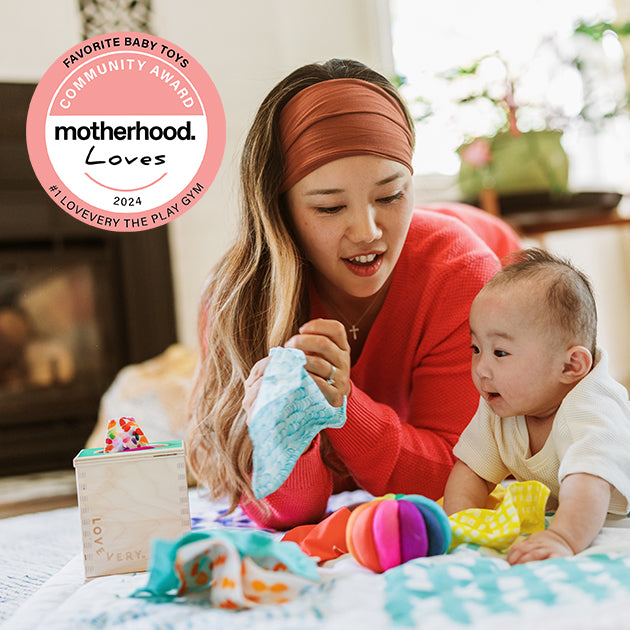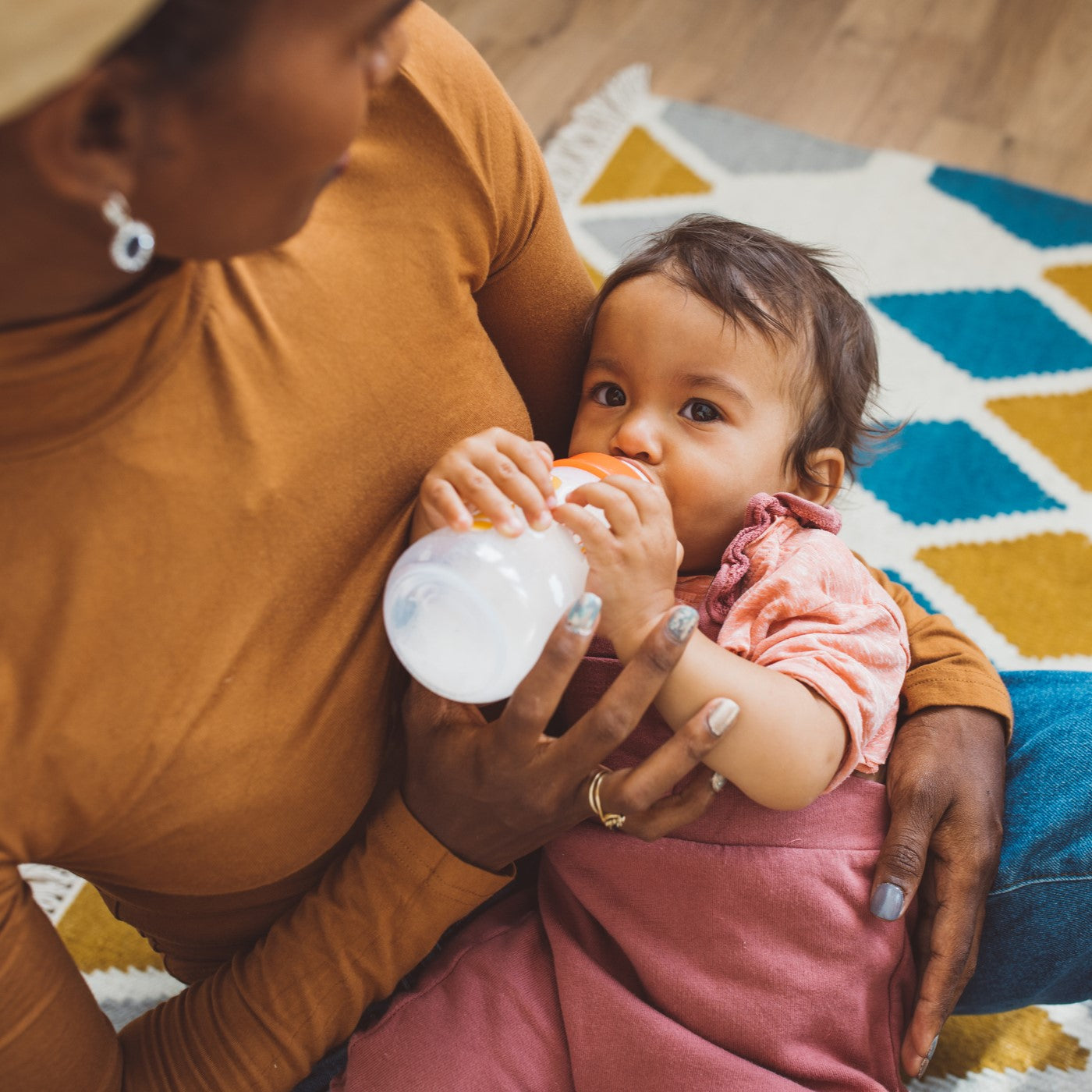A NECESSITY, NOT A LUXURY
with Latham Thomas
We had the chance to chat with expert Doula & founder of Mama Glow, Latham Thomas, on March 23rd. The same day New York City Mayor Eric Adams announced the expansion of a citywide doula program, a Midwifery Initiative, and a maternal health care services program. The Citywide Doula Initiative will provide free access to doulas for birthing families, focusing on 33 NYC neighborhoods with the greatest social needs. The Midwifery Initiative builds on research about existing midwifery care models across pregnancy, birth, and the postpartum period. Additionally, the Maternity Hospital Quality Improvement Network (MHQIN), a clinical and community initiative that seeks to reduce disparities in preventable maternal morbidity and mortality, will be expanded across all 38 birthing facilities in NYC.
On the NYC Doula Initiative
Through this expansion, we'll be able to support folks inside of their own communities, by offering doula support. Currently, when people reach out to Mama Glow, they're looking for a doula. We have a pathway where people can, on a sliding scale – depending on the experience of the doula and what type of services someone wants – spend on the lower end or choose something more expensive. Through these types of programs [like the program in New York], people are given access to a doula who cannot afford or do not have access to one, be it housing, or job related (for instance, if they are living in a shelter). People might not even realize they could use a doula. We're really excited about this program because of what they’ll be able to learn through the findings with doulas. We can advance maternal health in huge ways if people have access to midwives, which we really need to put at the forefront.
On the Mama Glow Foundation
At the Mama Glow Foundation, our focus is on advancing reproductive justice and birth equity through the lens of education advocacy in the arts. We started the foundation through a commitment to advance educational pathways that we see for doulas and midwives, to create access for scholarship support, educational advancement, career advancement opportunities, which we are currently working on with some Ivy League universities. And advocacy is a big piece, like working on the Black Maternal Health Momnibus Act, and working with New York City on their citywide doula initiative. In the arts we see a powerful pathway of expression, of education, of activating people, and creating advocates. Part of my background was visual arts and it's something that I really believe could be helpful in us changing things.
One of the first mission driven projects that we released was with a partnership with Carol's Daughter and L’Oréal called Love Delivered, where we are in five major cities and matching families in New York, L.A., Miami, Atlanta, and D.C. It was announced as part of the White House Maternal Health Day of Action in December but was launched in April of 2021 during Black Maternal Health Week. And so, we are matching families with Mama Glow trained doulas, and it's incredible. It's what we already do as a business, but to be able to do it pro-bono on the foundation side is awesome. And it’s great to be able to do it now with the City of New York.
Workforce development is a huge focus of the foundation. We have partnerships with organizations and work to create programs like we did with the city of New York. We can capacity build and make sure there's more doulas available and more working doulas getting more experience to be accessible as part of the city network. There's more to come with the foundation that will be driven around the arts piece, which will be launching more towards, I think, the fall. The foundation is also having a fundraiser this May, as well as our doula expo. That will help us to bring together people and stakeholders in maternal health, as well as businesses and elected officials, to really talk about maternal health. We're about to celebrate our first year of operation, and it's growing so quickly, and we're so thankful for all the support we've had, and we couldn't be prouder of the work. And it's exciting, but we still have to focus on doing the work. I'm really committed to bringing in more work and focusing on opportunities to lift up Black female led enterprise and Black and allied organizations. We love Black Mamas Matter Alliance. They are an incredible advocacy platform that people should be supporting. They have single handedly declared Black Maternal Health Week, through painstaking work to anchor it and be formally recognized by the Biden-Harris administration. We're thankful for that week to also lift up our folks in the space who are doing the work and to celebrate, reflect, and to build and think about the future and imagine what we want to design. We’re happy to be in this community and supporting families, which is what it's all about, really.
Black and Indigenous women in the U.S. are roughly 3x more likely to die from pregnancy-related complications than white women.
Source: Center for Reproductive Rights
On Black Maternal Health & the Work in Progress
The public or people who are outside the space of maternal health are just hearing about it now, but we’ve been fighting for this. We've all been working towards addressing this; we're all problem solving every day. We have been here building a doula workforce of thousands globally to be able to combat this, in their cities and their jurisdictions, where they have access to supporting people. But it's not just individuals who need to do the work, it's policy. It's government that has to step in and say, we see this not only as a black crisis, but as a human rights issue. This is a crisis for all of us, right? We should be thinking about it in this lens. Because it's been seen or categorized as an issue for Black people only, there has not been, until recently, a drive to solve for it at the federal level. There's always been conversation, but there hasn't really been a comprehensive legislation package until recently when the Black Maternal Health Momnibus Act started to come together in the past two to three years. And multiple pieces of that package of legislation have passed.
What we would like to see is of course more doulas and more midwives, but the problem is that we have a system that upholds, supports, and maintains a code of medical racism. And when I say that, I do mean race, but I also mean the other forms of white supremacy that show up in medical spaces, which includes homophobia, transphobia, fatphobia, ableism, ageism, sexism, and all those things. So, all of those factors marginalize people who go into [medical] spaces like this. Even just as a woman. Guess what? The preferred person in these spaces, the person who's deferred to, and who is centered as a human, is a man. All of our medical study centers men first, and the people who are running the studies are men. So, when we go into these spaces, our experience will be layered based on how many identities you show up with – how many margins or intersections make up who you are will impact your experience. I'm not saying that just because you show up black into a space that you're going to have a bad outcome, it may be that you have an incredible experience. But the way the space is set up, it’s not designed to support you. Not the doctors individually, I'm talking about the system. We have a system that was built off the backs of the very people who are most impacted by it. So, what's important here is to look at what needs to be uprooted and shifted, reformed and rebuilt, and design something different.
It's not just diversity and inclusion training. It's teaching the next generation, especially medical school students, so that they can help shift the culture of these institutions. It is also investing in other models of care, outside of hospital care, which we know is the most dangerous place in the developed world to give birth. Plus, we’re the only country in the developed world that doesn't have a federal paid leave policy for birth, and one in four women go back to work 10 days after having a baby. In the US, we also have a higher obstetrician to midwifery ratio. These factors alone set it up so that we're not going to succeed. We need to have federal paid leave, because regardless of how amazing your birth was, if you had to go back to work 10 days later, or you have to cobble paid leave together, it impacts everybody. The goal is to put the power in the hands of the people and entrust them in their solution building, and to funnel resources to the people doing that work so they can impact conversation and create bridges within their communities.
For pregnant Black mothers, there is strong evidence that a doula can be an advocate against bias that might be unconscious or otherwise hard-to-spot for a woman distracted by the demands of labor.
Planned Parenthood
On the Necessity of Support during Birth
If you're advocating for yourself, if you're in the midst of fighting for your life or fighting for your dignity or your safety, you can't give birth. You can't be birthing and protecting yourself at the same time because birth requires the opposite. It requires you to be vulnerable. We expect people to fight for their protection and safety while navigating a space where they feel unsafe. Then tell them they should trust this place, even though they'd heard so many stories about people having bad experiences. This is not how the brain and the body work, and I think it's interesting to put this expectation on people when they aren't set up to succeed. We have to think about the design of the space, and the way people are treated from the moment they walk through the doors of the hospital to the moment they leave: what are the multiple touchpoints and how do we improve them? How do we make sure that they feel that sense of comfort and trust? Think about a time where you had to use your voice in a situation where you didn't feel safety, if you think back to that, you can feel in your body what it feels like to be upset and need to communicate it. So, imagine being in the position of vulnerability of a space that you don't know, the hospital, and you have to advocate for yourself on uncertain terms in an uncertain space. This is not the ideal setting to facilitate birth, or the ideal circumstances. We have to understand that when people are under attack in that way, or have stress, fear or anxiety that surfaces, it makes it very challenging to give birth. We can't ask people to do all of this. This is why it's important to have a doula present who can help. We cannot ask somebody to also fight for their life, and also deliver their baby. You can't do both. You're either fighting for your life, or you're having a safe and healthy birth.
On Finding & Affording a Doula
If you cannot have a doula, you can have a family member that you trust, a friend, or someone who's already gone through the process. And virtual doula access is huge. A lot of people do virtual doula support now to help you navigate the experience. It's important to check out options where you are because there's always community-based doulas. There are always folks who are doing pro bono or sliding scale work, there’s a doula for everybody. So even if you're financially constrained, don’t assume that there's not somebody who could help you. There are programs for people who are in need. I would say, please research and see who in your community is doing the work. You can also look online, even on Instagram, for resources. A lot of cities have community-based doula programs that you can tap into, and a lot will be springing up over time. Another option is asking your family, “instead of getting me this fancy stroller, invest in my doula support.” It's necessary for people to have support. I don't think it's a luxury. I do think that it's necessary for us to have support and to be witnessed in our vulnerability, to have somebody who knows how to navigate this experience, to be a guide and a cheerleader, and an advocate.
Shop & Donate
Motherhood & A Pea in the Pod will be donating $2 per sale of each chari-tee to Black Mamas Matter Alliance, with a minimum commitment of $10,000.
Support the Cause
Mamma Maternity Tee
SHOP NOW
Support the Cause
#BEAMOTHER Tee
SHOP NOW





